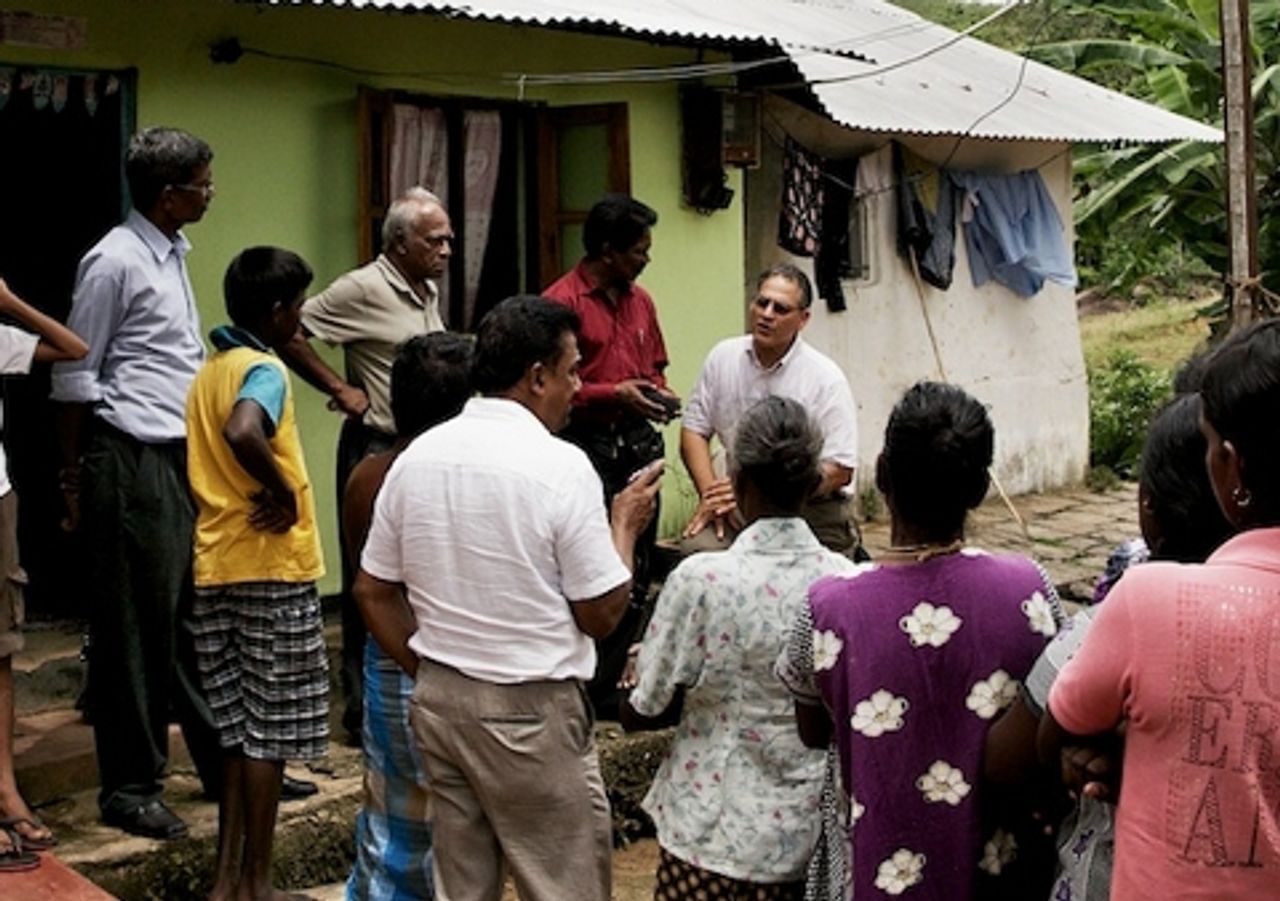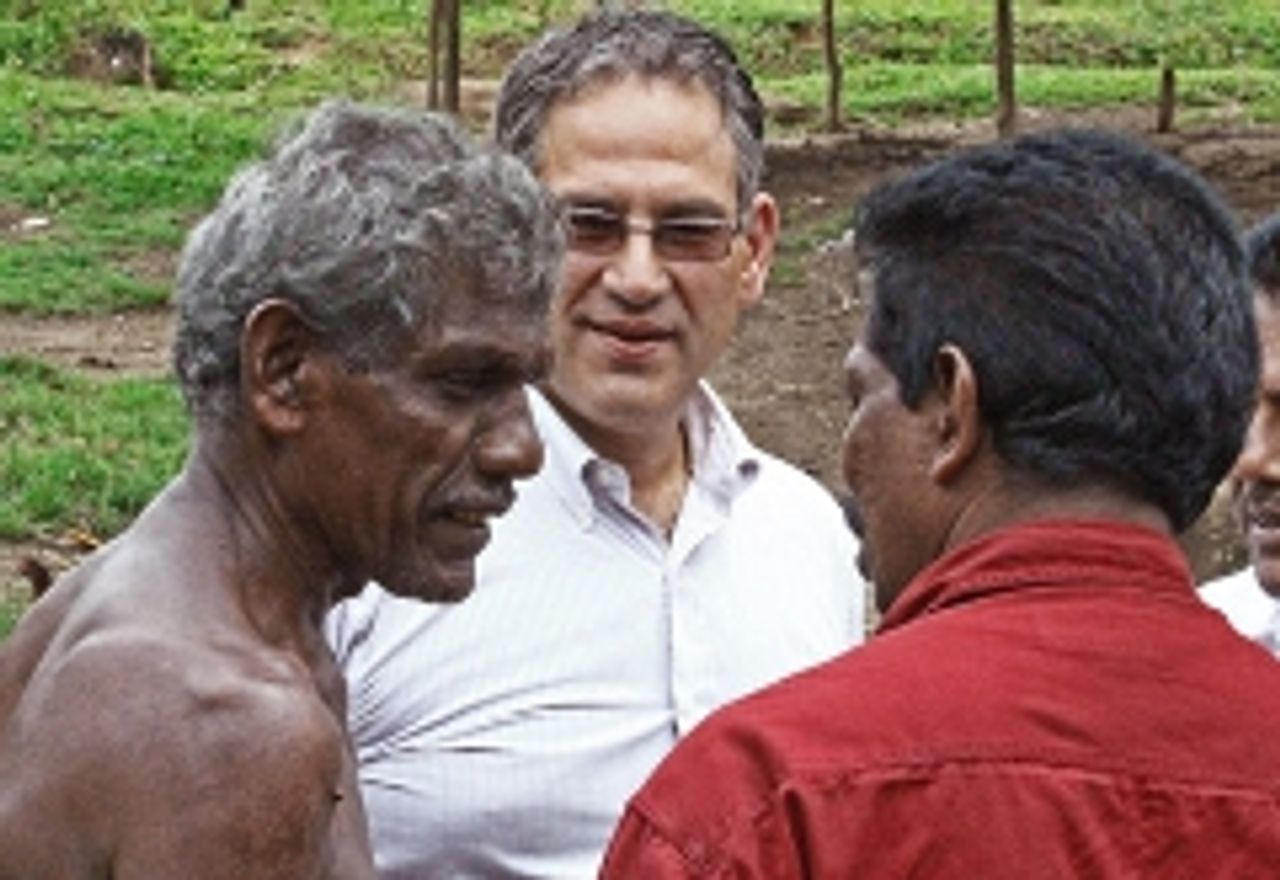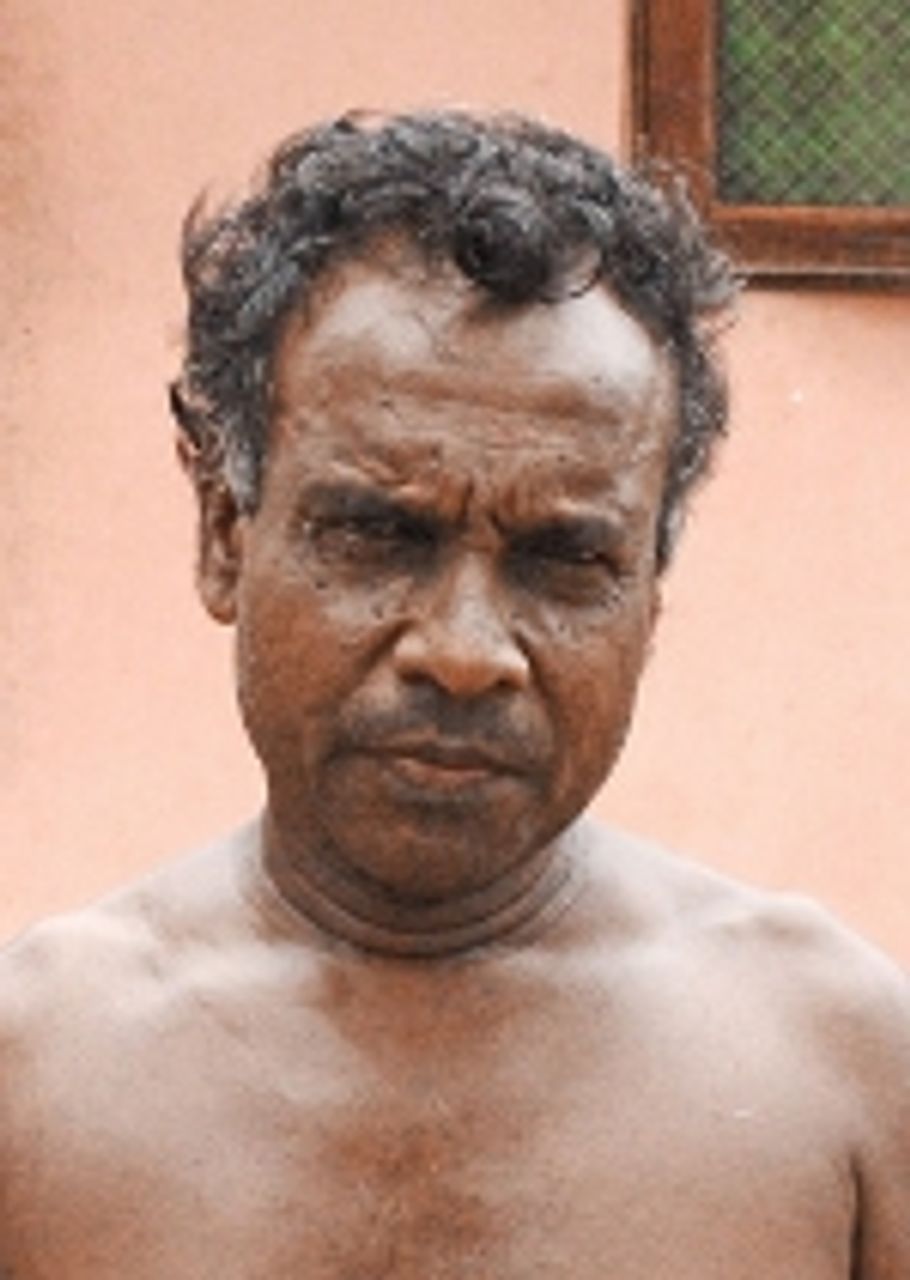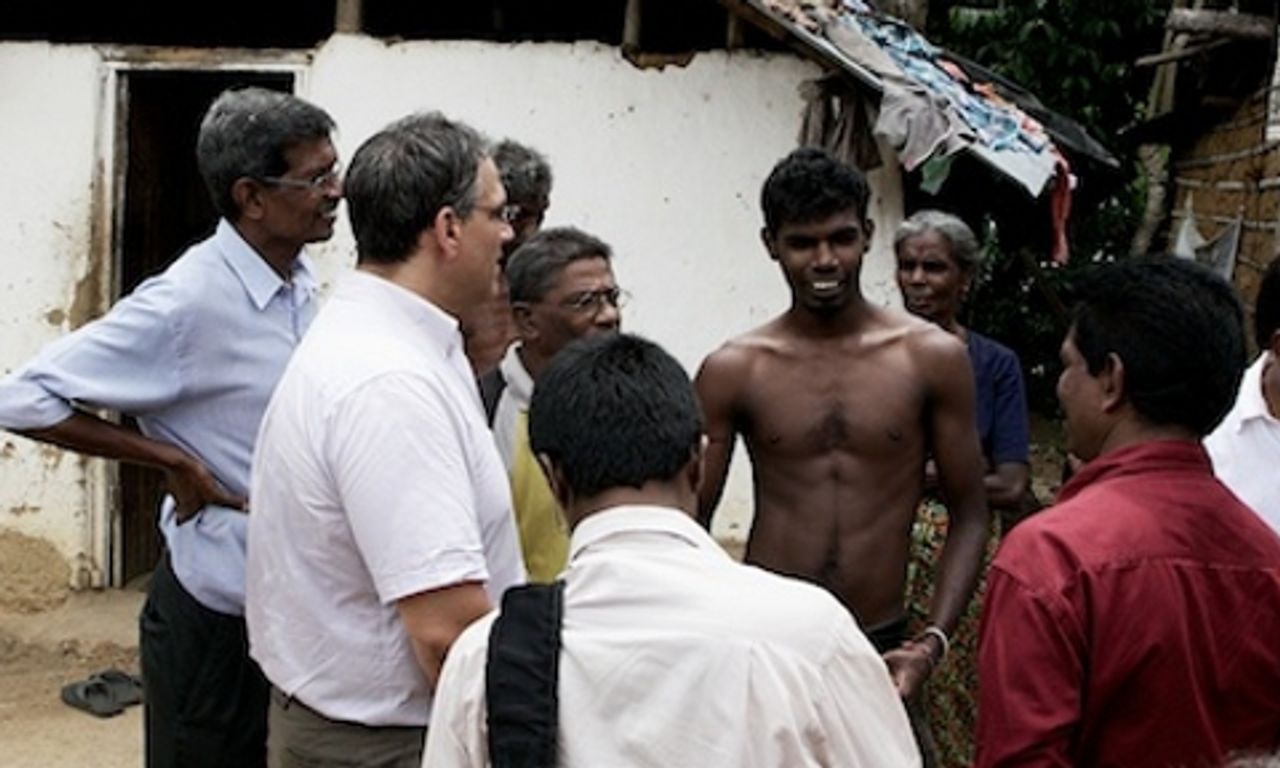On August 28, Jerry White, the Socialist Equality Party (SEP) candidate in the US presidential elections, met with Ambanpitiya Estate rubber workers in Kegalla. White is visiting Sri Lanka as part of an international tour that will include Germany and Britain.
Kegalla, a major Sri Lankan town, is 78 kilometres from Colombo and surrounded by rubber plantations. Rubber is currently the country’s fifth largest export earner. Plantation workers, who are among the most oppressed sections of the Sri Lankan working class, live in small, barrack-style line rooms without basic facilities.
 Jerry White talking to estate workers and their families
Jerry White talking to estate workers and their familiesThe 1,500-acre Ambanpitiya Estate employs 350 workers and is two kilometres from the main road. But there is no public transport and so workers have to walk along a substandard road to reach the estate.
White and Sri Lankan SEP members climbed a steep narrow track to reach the plantation line rooms. Along the way, they met a 63-year-old retired woman worker.
White explained the SEP’s international foundations and the party’s struggle to unite American and Asian workers. “You are working for the same multi-national corporations around the world. Workers of both countries—US and Sri Lanka—are same,” he said.
“In Detroit, where I’m from, huge car manufacturing corporations use rubber produced by you for making tyres. The working class is connected all over the world,” White said.
The woman replied: “It is good to unite the workers in US and Sri Lanka.” She asked whether White wanted her to vote for him.
White explained that he was not visiting Sri Lanka to gain votes but to explain the necessity for the construction of an international revolutionary party of the working class. Sri Lankan SEP members pointed out that their party was contesting the provincial council elections.
 White listening to Thangavelu (left)
White listening to Thangavelu (left)Thangavelu, a 60-year-old estate worker, told White: “We receive 515 rupees ($US4) a day but only if we work for 21 days per month. If the number of working days is less than that [even if caused by rain] then the day’s salary is cut to 355 rupees.”
About 20 plantation workers and their families gathered to meet the socialist candidate and discuss the party’s policies. White thanked them for allowing him to visit the estate.
“You may wonder what business a US presidential candidate has visiting Sri Lanka. It is clearly not to get your votes. Our parties in America and in Sri Lanka are a very different kind of party. We are parties of the working class and we are socialists.”
White explained that although the US was seen as rich and Sri Lanka as poor, the population in both countries was divided into a very wealthy minority at the top and the vast majority, the working class, at the bottom. “The working class, in Sri Lanka or in America, has no voice in the political system, which is controlled by the wealthy,” he said.
“In 2008, millions of workers voted for President Barack Obama because they wanted an end to war and poverty,” he continued. “But Obama, like Rajapakse in Sri Lanka, spoke for the rich.” White said former US President George W. Bush and Obama both provided billions of dollars to save the banks but claimed that there was no money for the creation of jobs and schools or for healthcare.
The socialist candidate explained that the SEP “is the only international socialist movement on the planet. We say workers in every country must have a social right to decent housing, education and good healthcare.”
White said that although there were “more than enough resources” to provide these basic facilities for the entire world population, all economic decisions were taken to serve the interests of richest 1 percent. “As socialists in Sri Lanka and America, we say that wealth should be used to end poverty, to raise the living standards of all workers throughout the world, and to end inequality.”
 Kumaraswami
Kumaraswami Joining the discussion, Kumarasami, a middle-aged worker, said: “If the current conditions continue, we face a dangerous situation in the future. We can’t manage with our present salary anyway.” Kumarasami explained that he produced 4 kilograms of rubber latex each day, which was worth 3,200 rupees, yet his daily wage was just 280 rupees.
White pointed out that young workers in the American auto industry have had their wages cut by half. “Everyone is told that they are in the market and they must adjust to that. Rubber workers in China, Indonesia and Sri Lanka compete with each other. The unions tell workers that their enemies are workers in other countries, not the capitalists in every country.”
White pointed out that workers needed a new leadership and perspective to fight for their rights. A plantation worker approvingly replied: “Even we want this sort of party.”
A youth said he was working as a hotel cook for 500 rupees per day. “My parents are no longer working in the plantation—they are retired—and so I have to look after them on my 500-rupee wage. All the youth here are like me.”
 Youth explaining their conditions
Youth explaining their conditionsPasimalar, a female plantation worker, described the conditions on the estate. “We are still living under the same conditions as our grandparents,” she said. “Whoever has been in power has done nothing to upgrade our lives.
“We have not gone to school. We’re unable to send our children to school. Even if they went to school, they’re not in a position to carry on their studies but are forced to look for odd jobs. We’re happy that you’ve come here [to discuss these issues].”
The US presidential candidate said: “In America the working class feels that things are going backward. While there are new computers and technology, and production has increased, the working class has been driven into poverty.”
White was invited by one young man to see his home. It had only two rooms—each 10 feet x 10 feet—yet housed 10 people. When White asked the young man what he felt when he saw large houses on television, he said he wished he had that sort of home.
White responded by explaining that the SEP was fighting for program that would provide everyone with a decent home. Asked what he felt about his current conditions, the young man replied: “My parents, like my grandparents, were unable to educate us. If we’d been educated, we would have lived under better conditions than this.”
Commenting on the Sri Lanka government’s communal war against the Tamils, another youth said: “It has happened but we don’t know much about what went on. Here we—Sinhala and Tamil workers—are happily living together.” White pointed out that the ruling class constantly worked to try to divide workers along communal lines.
White explained that tens of thousands of young people in the US failed to find work after finishing college and had huge education loan debts. “All over the world,” he said, “young people face the same conditions.”
Asked about what he knew about America, the young man replied that all he knew was what he had seen on television. White said television programs attempted to present everything in the US as wonderful, but this was “not the reality,” adding: “There are classes in America, with the very wealthy at the top and millions of workers at the bottom.”
The young man concluded the discussion by telling the US presidential candidate: “We are happy to meet you and would like to join your party.”
